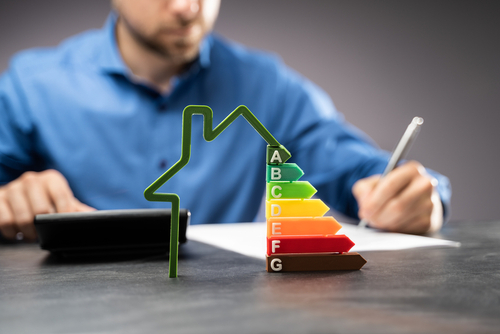The minimum energy efficiency standards (MEES) regulations have changed with effect from 1 April 2023.
A landlord of sub-standard non-domestic private property must not continue to let the property (on or after 1 April 2023), unless either of the following apply:
A. The landlord makes sufficient energy efficiency improvements to the property so that the property is an E rating or above.
B. If the landlord can claim a legitimate reason not to do so, this has been validly registered on the PRS Exemptions Register.
The current benchmark of “sub-standard” is where the property (or the building of which it forms part) has a valid Energy Performance Certificate (EPC) below an E rating (being a rating of F or G).
So, what does this mean for you?
Implications for Landlords
Owners of let property should review their portfolio and affected properties should be identified to ensure that immediate steps are taken to either increase the energy rating to an “E”, or if an exemption applies, then this should be applied for.
The implications for continuing to let the property in breach of these regulations could result in a financial penalty against the Landlord, up to a maximum fine of £150,000 per breach.
Implications for purchasers of let properties
MEES compliance is also now an important consideration on acquisition of let properties and when negotiating new tenancies. Fortunately, there is a short-term exemption of six months for new owners of property. After that, the buyer must ensure that the property complies with the MEES regulations or claims one of the exemptions, if appropriate.
Exemptions are not an indefinite remedy from complying with the MEES though, as most exemptions only last for five years (although they can be applied for more than once). The exemption, with supporting documentary evidence, must be logged on a public register.
The five-year exemptions currently are:
- all cost-effective energy efficiency improvement works have been carried out, or there is none to be carried out. The landlord will need to lodge three supporting quotes on the exemptions register.
- consent is required to carry out works and that consent cannot be obtained or is subject to unreasonable conditions. The regulations provide that reasonable efforts must be made to obtain consent in the case of third parties such as lenders or planning authorities/listed buildings.
- an independent surveyor certifies that carrying out the works would result in a reduction in the market value of the property by more than 5%.
- a suitably qualified expert states that carrying out insulation works on external walls would have a “negative impact” on the property.
Exemptions do not pass from owner to owner, which means that from April, buyers will need to carry out their own investigations and, where appropriate, register for a new exemption.
Who bears the cost?
Whether a landlord can recover the costs of energy improvement from a tenant will depend on negotiation (in the case of a new letting) and/or an analysis of lease terms.
There will be a distinction between works required to comply with MEES Regulations and works that a landlord or tenant may wish to carry out to improve a property’s carbon footprint or energy usage more generally. The position on recovery of costs will differ according to context and individual lettings.
The key lease provisions to consider are statutory compliance, service charge, consent to works and reinstatement obligations.
The future
Further changes to MEES Regulations and an escalation in energy efficiency requirements are expected. The governments current proposals are to tighten the MEES regime for commercial property, the current proposals are that the minimum standard will be raised to EPC rating B by 2030, with EPC C as an interim step by 2027.

How we can help
If you need any assistance in connection with interpreting your existing lease or concerns in connection with the latest changes to energy ratings for let properties then please contact Cheryl Bolt in our Commercial Property Team who will be able to help.
Email [email protected]
Call 01803 213521
Cheryl Bolt, Associate Solicitor
Email us : [email protected]
call one of our offices:
South Devon 01803 213251
Exeter 01392 274006
North Devon 01271 342268
You can also complete an online enquiry form. One of the Wollens team will contact you as soon as they are available.
Commercial Property | Wollens Solicitors



